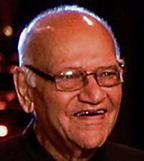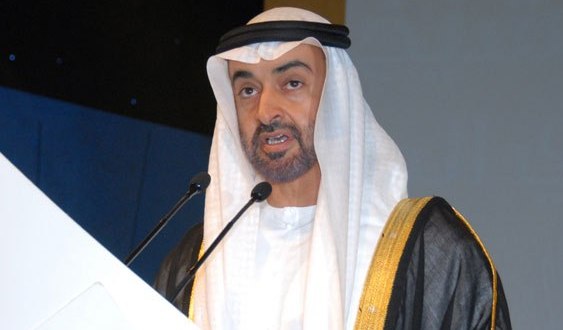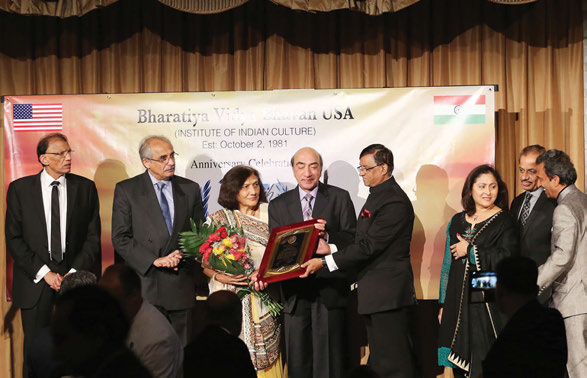
The govt may have to revisit policy in the light of victory of some separatists in Lok Sabha polls
“So, in a manner of speaking, the Modi-Shah policy of stern action against anti-nationals may become the trigger for a recurrence of the troubles Punjab faced in the 1980s. Policymakers should keep such factors in mind before taking hard decisions.
The defeat of moderate leaders like Omar Abdullah and Mehbooba Mufti in Kashmir and the victory of a hardliner like Engineer Rashid are signs that the Modi-Shah duo needs to ponder over. The swift and decisive action they took in the troubled state of Jammu and Kashmir to abrogate Article 370 had the approbation of the BJP’s core supporters in the Hindi heartland and even beyond, but the fallout is becoming alarmingly clear in the aftermath of the 2024 Lok Sabha elections. Muslim voters of Kashmir are turning away from their own mainstream political parties and opting for the more defiant opponents of the Modi regime. This is another cause for concern.”

The Modi 2.0 government adopted a no-holds-barred stand against individuals who were perceived to be a security threat. The new government led by Narendra Modi may have to revisit this policy in the light of the victory of some separatists in the recent Lok Sabha elections.
The election of imprisoned Khalistani activist Amritpal Singh from Khadoor Sahib and Indira Gandhi assassin Beant Singh’s son Sarabjeet Singh Khalsa from Faridkot should make the government sit up and take notice. The Surjit Singh Barnala-led Akali government, which worked in close association with the ruling Congress at the Centre in the 1980s, had got the Sikh masses to reject Khalistan. In the early 1990s, Jat Sikh farmers assisted the government in curbing terrorism. Without their active help, terrorism could not have been wiped out.
The allegations made by Canada regarding the murder of Khalistani separatist Hardeep Singh Nijjar and the US claim about an India-sponsored plot to eliminate Gurpatwant Singh Pannun, a US national spearheading the Khalistan demand in the West, must have influenced the people who voted in favor of Amritpal and Sarabjeet.
So, in a manner of speaking, the Modi-Shah policy of stern action against anti-nationals may become the trigger for a recurrence of the troubles Punjab faced in the 1980s. Policymakers should keep such factors in mind before taking hard decisions.
The defeat of moderate leaders like Omar Abdullah and Mehbooba Mufti in Kashmir and the victory of a hardliner like Engineer Rashid are signs that the Modi-Shah duo needs to ponder over. The swift and decisive action they took in the troubled state of Jammu and Kashmir to abrogate Article 370 had the approbation of the BJP’s core supporters in the Hindi heartland and even beyond, but the fallout is becoming alarmingly clear in the aftermath of the 2024 Lok Sabha elections. Muslim voters of Kashmir are turning away from their own mainstream political parties and opting for the more defiant opponents of the Modi regime. This is another cause for concern.
The election of two Khalistani Sikhs and a radical Kashmiri Muslim to the Lok Sabha underlines the need to consult sage and moderate voices like Gurbachan Jagat and Amarjit Singh Dulat, the latter for dealing with Kashmiri malcontents. Should the elected MPs be allowed to enter and speak in Parliament and vent their feelings instead of silently inciting their co-religionists against the Indian state? Whatever steps the government had taken or planned against these rabble-rousers have not worked. Their respective communities have to be won over to our side.
Parakala Prabhakar is a thinker who describes matters in befitting words. He doubts if Modi can be convinced to adopt softer policies. Prabhakar reminds us that a wolf that wears sheep’s clothing will continue to be a wolf. In the constitution of his Cabinet and distribution of portfolios, Modi has already shown that he is the sole decision-maker. He continues to rule in the same manner as before.
Modi should be told that Israeli Prime Minister Benjamin Netanyahu is only creating more terrorists by killing Hamas fighters and bombing hospitals and civilian localities in Gaza. We had that experience in Punjab during our struggle with Khalistani terrorists. Listing and then eliminating culprits only resulted in their replacement, sometimes by two men for the one lost.
The only way to end terrorism is to deprive the terrorists of the oxygen that is provided by their own co-religionists in the shape of logistical support or even tacit approval of their madness. It is only when the community is won over that you can hope for closure. The experience of the police in Northern Ireland was exactly the same as ours in Punjab. Of course, the figures of civilians and security personnel killed in the war against terrorists were five times larger in Punjab. When I pointed this out to the Chief Constable of Northern Ireland, he, in turn, was kind enough to point out to me that Punjab’s population was five times that of Northern Ireland.
If the entry of three anti-government MPs into the Lok Sabha is a matter of concern, the re-election of Mahua Moitra from West Bengal will ensure that the proceedings in Parliament will be lively. Smriti Irani will not be around, but Kangana Ranaut could be her replacement. If Mahua and Kangana get into a verbal duel in Parliament, I would hate to miss it.
The re-election of Shashi Tharoor was most welcome. He has established himself as a seasoned debater in Parliament. And now that Rahul Gandhi has come out of the ‘reluctant politician’ mode, Rahul and Shashi should make a good pair for the Congress in the INDIA bloc. Supriya Sule is a young woman whom I admire for her poise and equanimity. It was gracious of her to call on her vanquished opponent’s mother to soothe ruffled feathers in her own family, now that her cousin, Ajit Pawar, has been cut down to size.
The inauguration of the new Parliament building was presided over by the Prime Minister and the Speaker last year. Its inauguration for its actual intended use as a place where governance decisions are debated and approved — and sometimes (rarely) discarded — should take precedence over gimmicks. The people of India will be extremely unhappy and disappointed if they do not get to hear and see democracy at play in the new Lok Sabha.
The way Parliament was run in the 17th Lok Sabha was an insult to democracy. Walkouts, suspensions and adjournments were the norm. Even laws meant to curb crime were passed without a debate. We did not get to learn why the government took radical decisions like demonetization, the nationwide Covid lockdown and even the farm laws — which Modi was forced to repeal — without discussions in Parliament.
The normal parliamentary procedures of scrutiny of Bills by committees should be restarted now that one party and its supreme leader have been forced to share power with its allies. As Modi himself has admitted, there has to be consensus on critical decisions. Just one man or a cabal does not constitute a democratic decision-making body. If Modi wants the NDA to rule for the next 10 years, he will have to prove Prabhakar wrong.
If the NDA constituents were not able to influence Modi in the formation of the coalition Cabinet, they should stand firm on contentious issues like the National Register of Citizens and the treatment of minorities.
(The author is a former governor and a highly decorated retired Indian Police Service (IPS) officer)





Be the first to comment